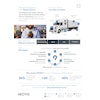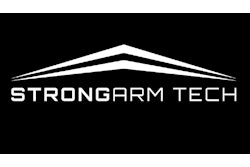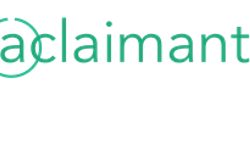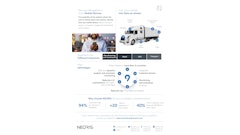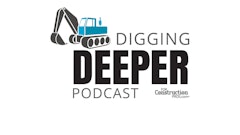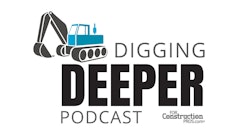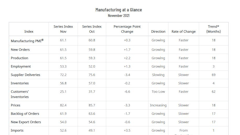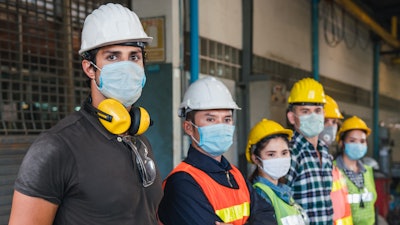
In 2020, the construction industry was able to conduct its daily work based on the ability to social distance during projects. However, with the change of U.S. presidential administrations, coronavirus-control regulations could make it harder to conduct daily responsibilities.
As COVID-19 cases rise, public health officials and the public continue to call for a more regulated mandate.
In just the last seven days, there have been a total of 213,305 cases countrywide adding to the total of 15,932,116 COVID-19 cases in just the U.S. alone. This brings in a tough choice for the state and federal government — another shutdown or a more regulated approach to preventing the spread?
As the new president-elect Joe Biden gets sworn in on Jan. 20, 2021, will the nation see a more aggressive approach to combat COVID-19? If so, how will this affect the construction industry in the next year?
Using data-driven strategy, Aclaimant, an insight-driven workflow solution for safety and risk management, updated its expectations for the Biden Administrations’ regulatory action on Covid-19 for construction sites. The system is designed to reduce the life cycle and escalation level of any type of business-related claim, such as COVID-19. With these strategies implemented, the potential mandates and regulations could have little effect on a company’s ability to continue normal daily construction work.
According to Alex Chilow, director of growth at Aclaimant, people should expect a more regulated approach to COVID-19 among the first initiatives of the Biden administration. These regulations are anticipated to include less dependence on the general duty clause, greater emphasis on fines and a more prescriptive approach to establishing mandatory minimum standards.
This is an initiative that is expected to be implemented across the board, including the construction industry. Although it is unknown what exact actions will be applied, Chilow believes they will reflect the emergency standards currently in place in Virginia, Oregon, California and Michigan — places that Aclaimant is already helping mitigate potential impact from the standards.
From experience, Aclaimant anticipates that there will be a narrow window between the time the new mandate is announced and when the government expects it to be followed — leaving little time to prepare. Chilow recommends that industries, such as the construction industry, anticipate these mandates now to avoid setback or delays when the mandate is enforced.
Aclaimant believes that with the implementation of a successful compliance program like their own, companies can increase workflow efficiencies, decrease costs by identifying hazards before they happen and identify problems with analytical engines.
“The essence of the Aclaimant workflow solution is that it enables a digital and connected safety experience — to capture actionable data from any internet-enabled device, wherever the contractor has operations,” Chilow said. “This makes possible real-time risk communication and mitigation while ensuring best-in-class process consistency and reducing paperwork from the field to the home office.”
With the possibility of stricter regulations, there is also a likelihood of heightened obligation to follow and implement those guidelines into daily work procedures. These regulations, although may be necessary, are time consuming for contractors to implement, and pose probable financial and reputational liability.
Chilow added, “Through its digital connections, defined workflows and deep analytical insights, Aclaimant gives contractors the tools they need to ensure regulatory compliance.
“This includes the ability to identify and correct deficiencies before they translate into accidents or regulatory sanctions. Simply put, we give contractors the tools they need to protect what’s important and to fundamentally improve their risk management culture and capabilities."
Chilow believes these tools are a necessity with or without a mandate for COVID-19 and can be applicable to any construction organization with multiple projects and work sites.
“Among other matters, the mandates are likely to address training programs, personal protective equipment, administrative practices and employee input in developing COVID-19 plans,” Chilow said. “A successful compliance program will require documentation, consistency of practice, and sufficient visibility into operations to quickly identify and address emerging problems.”
Aclaimant is already helping companies in states where emergency standards are currently in place. For example, Aclaimant has created a comprehensive program audit tool modeled after the Virginia emergency standard, a streamlined tool to report California non-occupational COVID-incidents to the worker’s compensation carrier and a new self-service daily employee health check-in tool that removes the administrative burden from the contractor’s human resources operations staff.
These tools provide companies, like the ones in Virginia, Oregon, California and Michigan, the ability to reduce administrative burdens, create a dependable audit trail and give management analytical insights — optimizing the companies’ programs, ensuring better outcomes and avoiding loss of productivity.
In addition, a data-driven business strategy, with these tools, could be deployed in as little as 30 days for a simpler system. However, the complexity of the deployment and the prioritization on the part of the construction company does play a factor in the pace of the implementation.
“The most effective systems will be the ones that are broadly adopted, that employees find relevant in their daily tasks and are intuitive for a broad cohort of users,” added Chilow.
Moreover, not only does a data-driven strategy alleviate potential problems before they become detrimental, as well as increase a company’s efficiency and safety, it can provide a return on investment. This can be measured through reduced worker compensation expenses and the cost saved by preventing incidents from occurring.
Chilow stated, “In most cases the system will more than pay for itself just through the avoidance of one significant accident.”
With these strategies implemented, construction companies could see a potential to continue their work through the next year with little effect from the COVID-19 pandemic — and a potential to alleviate costs in certain areas.
*Insights provided by Alex Chilow, director of growth at Aclaimant. Chilow cultivates and manages daily relationships with enterprise customers, distribution channels and industry partners. Before Aclaimant, Alex was the head of business development at an insurance brokerage firm based in Chicago.



